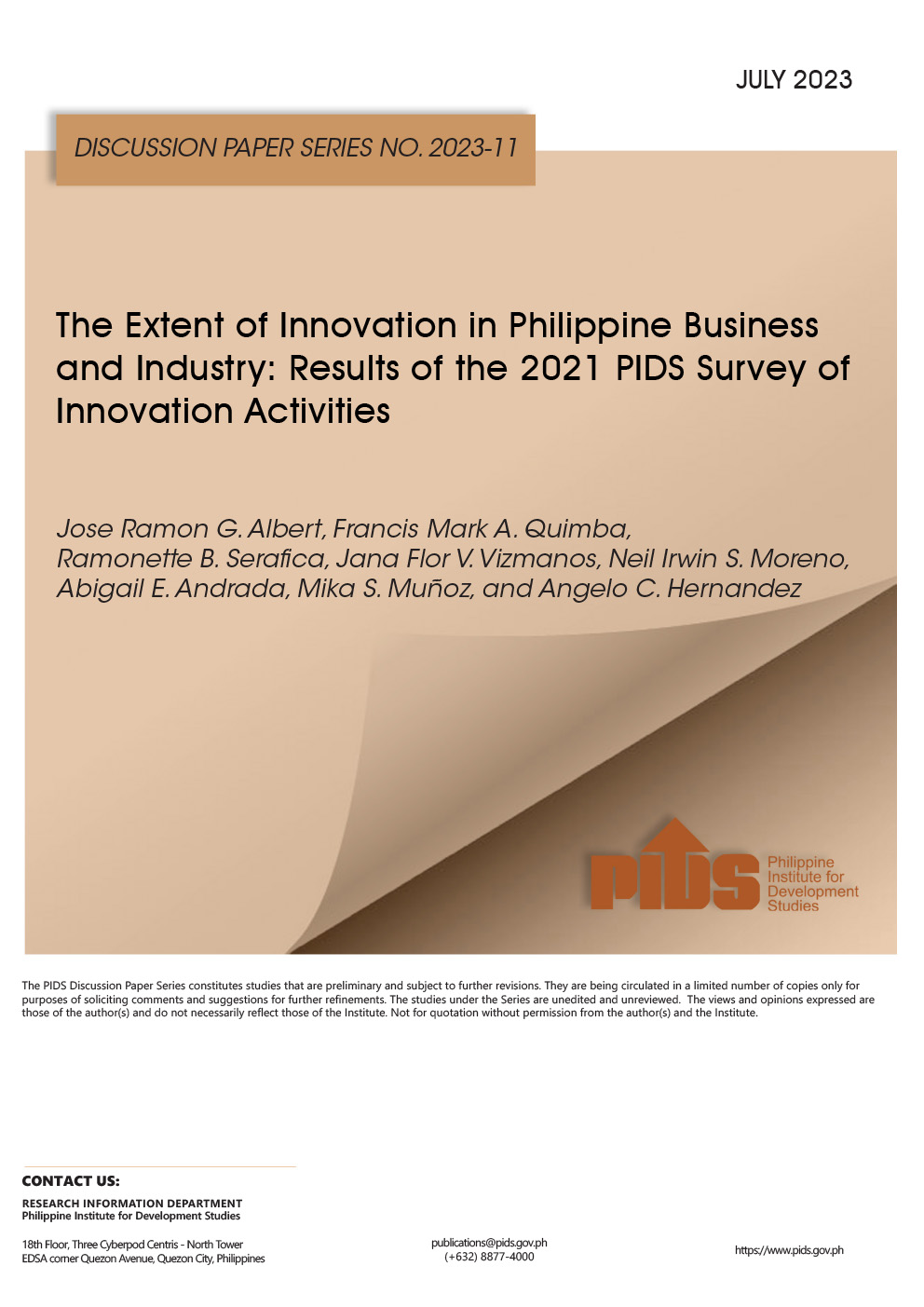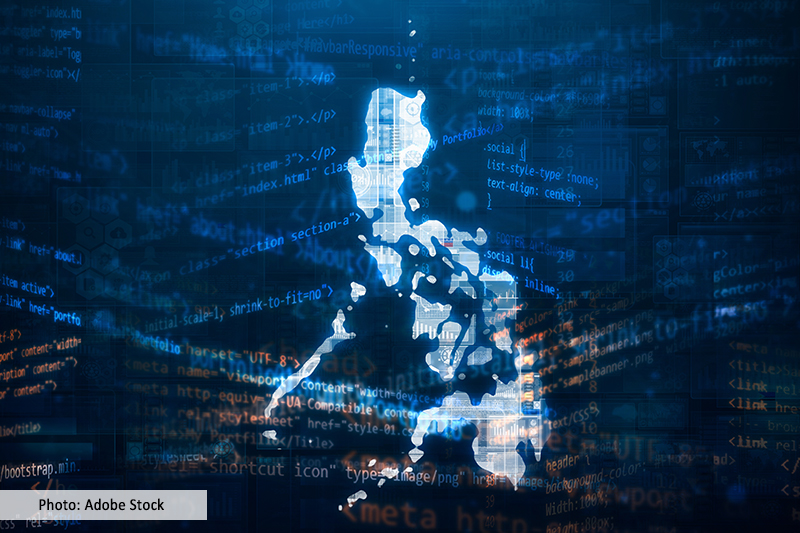
The COVID-19 pandemic has fast-tracked the digitalization journey of the country.
This was according to Undersecretary Rafaelita Aldaba of the Department of Trade and Industry (DTI) during a recent webinar coorganized by state think tank Philippine Institute for Development Studies (PIDS) and the Asian Development Bank (ADB).
Aldaba said the increasing use of technology in work, business, and other aspects of daily life has shaped new digital habits among Filipino consumers.
For instance, the number of DTI-registered online businesses went up from 1,700 in March 2020 to 82,000 in October 2020. In terms of volume of online payment transactions, there was a 624-percent and 130-percent increase in the use of InstaPay and PESONet electronic fund transfer services.
Moreover, Aldaba said that the pandemic has forced traditional enterprises and startups to create new digital business models to diversify revenue streams.
Large companies such as SM and Rustan’s have doubled their efforts to upgrade their e-commerce systems to serve online clients better.
While there has been progress in the country’s digital platforms over the years, Aldaba noted concerns that may prevent further developments.
One issue is that the economic statistics “do not currently give a clear and integrated response to questions about the role, nature, and size of platforms”.
A way to address this, according to Aldaba, is for the National Statistics Office (NSO) to include platforms in their surveys to obtain data on turnover and employment.
Another concern is the complicated structures of large international platforms. Aldaba explained that some transactions are routed and processed in multiple ways, making it challenging for NSO to get a holistic view of a platform’s activities.
The DTI official also emphasized the need for policymakers to assess and compare the country’s innovation progress with its counterparts. She said this is important as digital innovation transforms markets and has “subsequent impacts on firms, market dynamics, people, and communities”.
Apart from building data on the digital economy, Aldaba said there is a need to set up digital infrastructures, address the regulatory constraints that limit competition, and improve the skills of the Filipino workforce. These, she noted, are the objectives of DTI’s Inclusive Innovation Industrial Strategy (i3S).
The i3S aims to create globally competitive and innovative industries by building an innovation and entrepreneurship ecosystem, removing obstacles to allow the Philippines to attract more investments, strengthening the domestic supply chain, and deepening industries' participation in global and regional value chains.
Aldaba stressed that new technologies such as artificial intelligence, machine learning, and big data can drive “inclusive, resilient, and sustainable industrial development”.
“By implementing the i3S, we can improve our competitiveness and introduce new goods, new processes, and new business models in the market, which can lead to more high-quality jobs, income opportunities, and the emergence of new industries, thus resulting in an inclusive and sustainable industrial development,” she explained. ###
You may watch the webinar at https://www.facebook.com/PIDS.PH/videos/267811908346029. For more videos of PIDS events, go to https://www.pids.gov.ph/videos.
This was according to Undersecretary Rafaelita Aldaba of the Department of Trade and Industry (DTI) during a recent webinar coorganized by state think tank Philippine Institute for Development Studies (PIDS) and the Asian Development Bank (ADB).
Aldaba said the increasing use of technology in work, business, and other aspects of daily life has shaped new digital habits among Filipino consumers.
For instance, the number of DTI-registered online businesses went up from 1,700 in March 2020 to 82,000 in October 2020. In terms of volume of online payment transactions, there was a 624-percent and 130-percent increase in the use of InstaPay and PESONet electronic fund transfer services.
Moreover, Aldaba said that the pandemic has forced traditional enterprises and startups to create new digital business models to diversify revenue streams.
Large companies such as SM and Rustan’s have doubled their efforts to upgrade their e-commerce systems to serve online clients better.
While there has been progress in the country’s digital platforms over the years, Aldaba noted concerns that may prevent further developments.
One issue is that the economic statistics “do not currently give a clear and integrated response to questions about the role, nature, and size of platforms”.
A way to address this, according to Aldaba, is for the National Statistics Office (NSO) to include platforms in their surveys to obtain data on turnover and employment.
Another concern is the complicated structures of large international platforms. Aldaba explained that some transactions are routed and processed in multiple ways, making it challenging for NSO to get a holistic view of a platform’s activities.
The DTI official also emphasized the need for policymakers to assess and compare the country’s innovation progress with its counterparts. She said this is important as digital innovation transforms markets and has “subsequent impacts on firms, market dynamics, people, and communities”.
Apart from building data on the digital economy, Aldaba said there is a need to set up digital infrastructures, address the regulatory constraints that limit competition, and improve the skills of the Filipino workforce. These, she noted, are the objectives of DTI’s Inclusive Innovation Industrial Strategy (i3S).
The i3S aims to create globally competitive and innovative industries by building an innovation and entrepreneurship ecosystem, removing obstacles to allow the Philippines to attract more investments, strengthening the domestic supply chain, and deepening industries' participation in global and regional value chains.
Aldaba stressed that new technologies such as artificial intelligence, machine learning, and big data can drive “inclusive, resilient, and sustainable industrial development”.
“By implementing the i3S, we can improve our competitiveness and introduce new goods, new processes, and new business models in the market, which can lead to more high-quality jobs, income opportunities, and the emergence of new industries, thus resulting in an inclusive and sustainable industrial development,” she explained. ###
You may watch the webinar at https://www.facebook.com/PIDS.PH/videos/267811908346029. For more videos of PIDS events, go to https://www.pids.gov.ph/videos.












